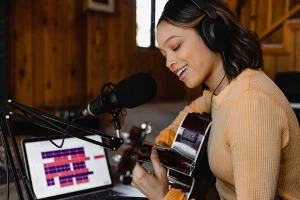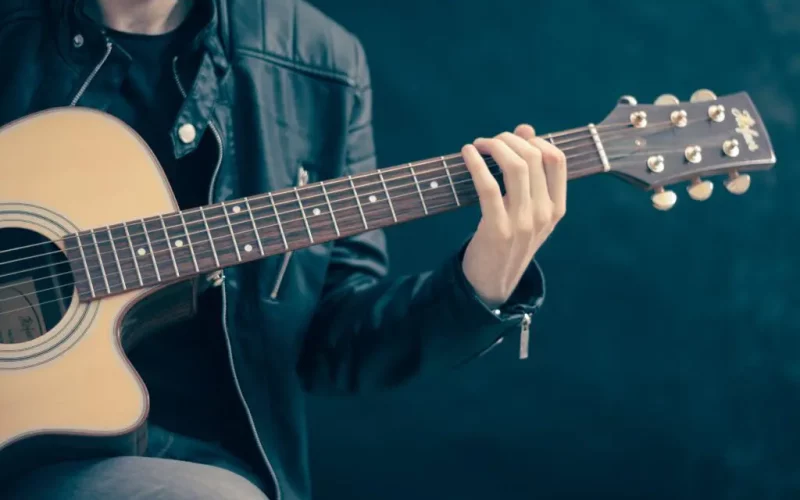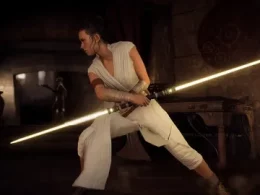Introduction
In recent years, the music industry has undergone a radical transformation, largely driven by the advent of digital platforms and social media. Among the most significant changes is the rise of influencer marketing in music. This phenomenon has not only reshaped how music is promoted but also how it is consumed. In this article, we will explore the evolution, impact, and future of influencer marketing in music.
The Evolution of Influencer Marketing in Music

1. Early Beginnings
Influencer marketing in music is not an entirely new concept. Historically, artists have relied on endorsements from well-known personalities to boost their visibility. For instance, radio DJs and television hosts used to play a crucial role in promoting new music. However, the advent of social media platforms like Instagram, YouTube, and TikTok has democratized this process, allowing virtually anyone with a substantial following to become an influencer.
2. The Digital Revolution
The digital revolution has been a game-changer for the music industry. Platforms like Spotify, Apple Music, and YouTube have made it easier for artists to distribute their music globally. At the same time, social media has provided a new avenue for promotion. Influencers, with their ability to reach niche audiences, have become invaluable in this new landscape.
The Mechanics of Influencer Marketing in Music

1. Identifying the Right Influencers
One of the first steps in influencer marketing in music is identifying the right influencers. These are individuals who not only have a substantial following but also align with the artist’s brand and target audience. Tools like social media analytics and influencer marketing platforms can help in this process.
2. Crafting Authentic Collaborations
Authenticity is key in influencer marketing. Audiences are quick to spot inauthentic promotions, which can backfire. Therefore, it’s crucial to craft collaborations that feel genuine. This could involve influencers sharing their personal experiences with the music, creating unique content like dance challenges, or even featuring in music videos.
3. Measuring Success
The success of influencer marketing campaigns can be measured using various metrics. These include engagement rates, follower growth, and, most importantly, music streams and sales. Advanced analytics tools can provide insights into the effectiveness of these campaigns, allowing for continuous optimization.
How Influencer Marketing Works in Music

1. Strategic Partnerships
Influencer marketing in music often involves strategic partnerships between artists, record labels, and influencers. These partnerships can take various forms, from paid promotions where influencers are compensated for sharing music, to more organic collaborations where influencers genuinely support an artist or song they love.
For example, a record label might partner with a group of TikTok influencers to create a dance challenge around a new song. These influencers then share their dance videos with their followers, who, in turn, create their own versions, spreading the song virally across the platform. This strategy has been particularly effective for genres like pop and hip-hop, where catchy hooks and beats lend themselves to short, repeatable content.
2. Amplifying Releases and Creating Buzz
Influencers play a crucial role in amplifying new music releases and creating buzz. By leveraging their platforms, they can introduce songs to audiences who might not otherwise discover them. This is especially important in an era where streaming services and social media algorithms dictate much of what listeners are exposed to.
For instance, an influencer might be given early access to a new single or album, which they can then share with their followers before the official release date. This not only builds anticipation but also creates a sense of exclusivity, encouraging fans to engage with the content and share it within their networks.
3. Shaping Trends and Genres
Influencers are also instrumental in shaping music trends and genres. Their preferences and endorsements can influence what types of music become popular, driving trends in real-time. For example, TikTok has played a significant role in the resurgence of pop-punk and the rise of hyperpop, with influencers driving interest in these genres through their content.
Moreover, influencers often introduce their followers to niche or emerging genres, helping to broaden the musical tastes of a wider audience. This has led to a more diverse musical landscape, where underground or experimental sounds can gain mainstream attention through influencer-driven campaigns.
Case Studies

1. Lil Nas X and TikTok
One of the most notable examples of influencer marketing in music is Lil Nas X’s “Old Town Road.” The song went viral on TikTok, thanks to a dance challenge that was picked up by numerous influencers. This virality catapulted the track to the top of the charts, showcasing the immense power of influencer marketing.
2. Billie Eilish and Instagram
Billie Eilish’s rise to fame can also be attributed to influencer marketing. Early on, she garnered attention from influencers on Instagram who shared her music and aesthetic. This helped her build a loyal fanbase even before she released her debut album.
The Impact on the Music Industry

1. Democratization of Music Promotion
Influencer marketing has democratized music promotion. Independent artists, who may not have the resources for traditional marketing, can now leverage influencers to reach a global audience. This has leveled the playing field, allowing for a more diverse range of music to gain recognition.
2. Changes in Consumer Behavior
The rise of influencer marketing has also changed how consumers discover and engage with music. Rather than relying on traditional media, many now look to influencers for recommendations. This shift has made it crucial for artists to maintain a strong social media presence.
3. Economic Implications
The economic implications of influencer marketing in music are far-reaching. Brands are increasingly partnering with artists and influencers for cross-promotional campaigns, creating new revenue streams. Additionally, the success of these campaigns can drive concert ticket sales, merchandise, and other ancillary revenue.
The Future of Influencer Marketing in Music

1. Integration with Emerging Technologies
As technology continues to evolve, so will influencer marketing in music. Virtual reality (VR) and augmented reality (AR) offer exciting possibilities for immersive music experiences. Imagine attending a virtual concert promoted by influencers or using AR to interact with music in new ways.
2. The Role of Artificial Intelligence
Artificial intelligence (AI) is another frontier. AI can analyze vast amounts of data to identify potential influencers, predict trends, and even create personalized marketing strategies. This could make influencer marketing even more effective and targeted.
3. Ethical Considerations
With great power comes great responsibility. As influencer marketing continues to grow, ethical considerations will become increasingly important. Transparency in promotions, fair compensation for influencers, and respect for audience trust will be crucial in maintaining the integrity of this marketing approach.
Conclusion
The rise of influencer marketing in music is a testament to the transformative power of digital platforms and social media. By leveraging the reach and authenticity of influencers, artists can connect with audiences in unprecedented ways. As technology continues to evolve, the possibilities for influencer marketing in music are limitless. However, as with any powerful tool, it must be used responsibly to ensure long-term success and sustainability.
In summary, influencer marketing in music is not just a trend but a fundamental shift in how music is promoted and consumed. Its impact is profound, democratizing music promotion, changing consumer behavior, and creating new economic opportunities. As we look to the future, the integration of emerging technologies and ethical considerations will shape the next chapter in this exciting journey.












